
With two World Cup wins apiece, India and West Indies are, after Australia, the most successful teams in the tournament. Underpinning that status have been some iconic performances over the years.
With two World Cup wins apiece, India and West Indies are, after Australia, the most successful teams in the tournament. Underpinning that status have been some iconic performances over the years.
West Indies dominated the first two World Cups, with their battery of pace bowlers and uncompromising batsmen, who are well-represented here. India eventually broke that monopoly, when they stunned West Indies, and the world, in 1983, and the key men from that astonishing victory are difficult to ignore. Add to that mix two of the greatest batsmen in the history of cricket, and you get quite the XI.
1. Sachin Tendulkar (India)
 Sachin Tendulkar struck a crucial 85 in the 2011 semi-final against Pakistan
Sachin Tendulkar struck a crucial 85 in the 2011 semi-final against Pakistan
The most prolific batsman in the tournament’s history, Tendulkar was an imperious force in World Cup cricket. Making his tournament debut in 1992, the then 19-year-old stroked an unbeaten 54 as India registered victory against the eventual Cup winners Pakistan.
Pakistan are yet to beat India at the tournament, and Tendulkar continued to have his say in match-ups between the two, making 98 from 75 balls against them in 2003, and a game-changing 85 in the semi-final of the 2011 edition.
India made the finals of both tournaments, and Tendulkar had a significant part to play in both. He finished 2003 with 673 runs – a record for a single World Cup tournament – as India finished runners up, while his masterful centuries against England and South Africa, en route to India’s title win in 2011, are still remembered fondly.
2,278 CWC runs @56.95, 6 centuries
2. Gordon Greenidge (West Indies)
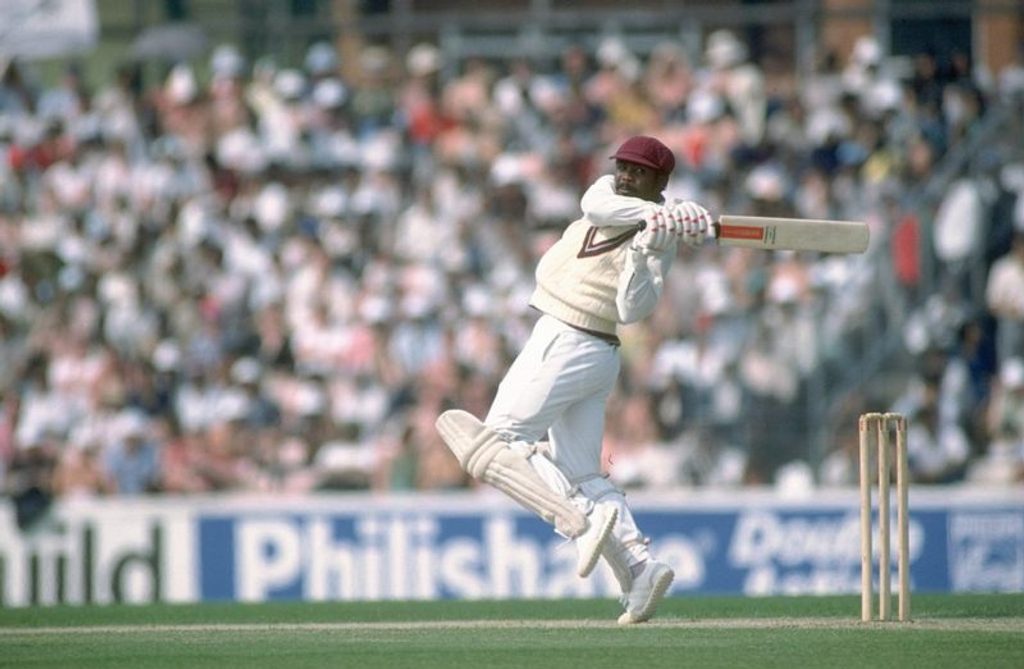 Gordon Greenidge lays into a pull during the 1983 semi-final at The Oval
Gordon Greenidge lays into a pull during the 1983 semi-final at The Oval
One of the symbols of West Indies’ dominance, and a feature at the top of their order, Greenidge’s attacking game often set the tone by getting the innings off to competitive starts, as West Indies swept aside all teams in the first two editions of the tournament. His first World Cup century – an unbeaten 106 as West Indies thumped India by nine wickets in 1979 – encapsulated the Greenidge brand of batsmanship, as he left the Indian side with few answers to his hard hitting.
591 CWC runs @45.46, 2 Centuries
3. Mohinder Amarnath (India)
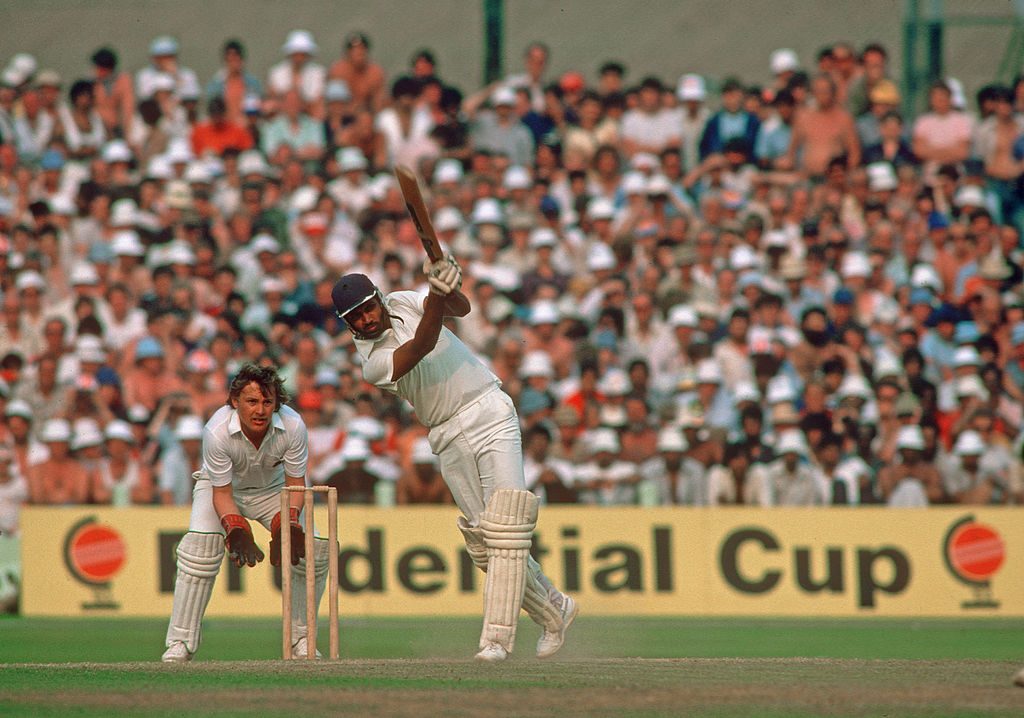 Mohinder Amarnath drives England’s Vic Marks in the 1983 semi-final
Mohinder Amarnath drives England’s Vic Marks in the 1983 semi-final
The vice-captain during India’s 1983 triumph, Amarnath played his part in guiding the rank outsiders to their maiden World Cup win in a manner that cannot be understated. The roundhead to Kapil Dev’s cavalier, Amarnath brought to the fore some sober batsmanship that went hand-in-hand with his miserly medium pace. He was Man of the Match during Indian cricket’s defining moment, producing an outstanding spell of 3-12 in seven overs to cut through West Indies’ fearsome line-up in India’s defence of 183 in the final. It was his second successive Man of the Match award, having also been India’s MVP in the semi-final against England, leaving behind an indelible mark in Indian cricket history.
254 CWC runs @21.16; 16 CWC wickets @ 26.93
4. Viv Richards (West Indies)
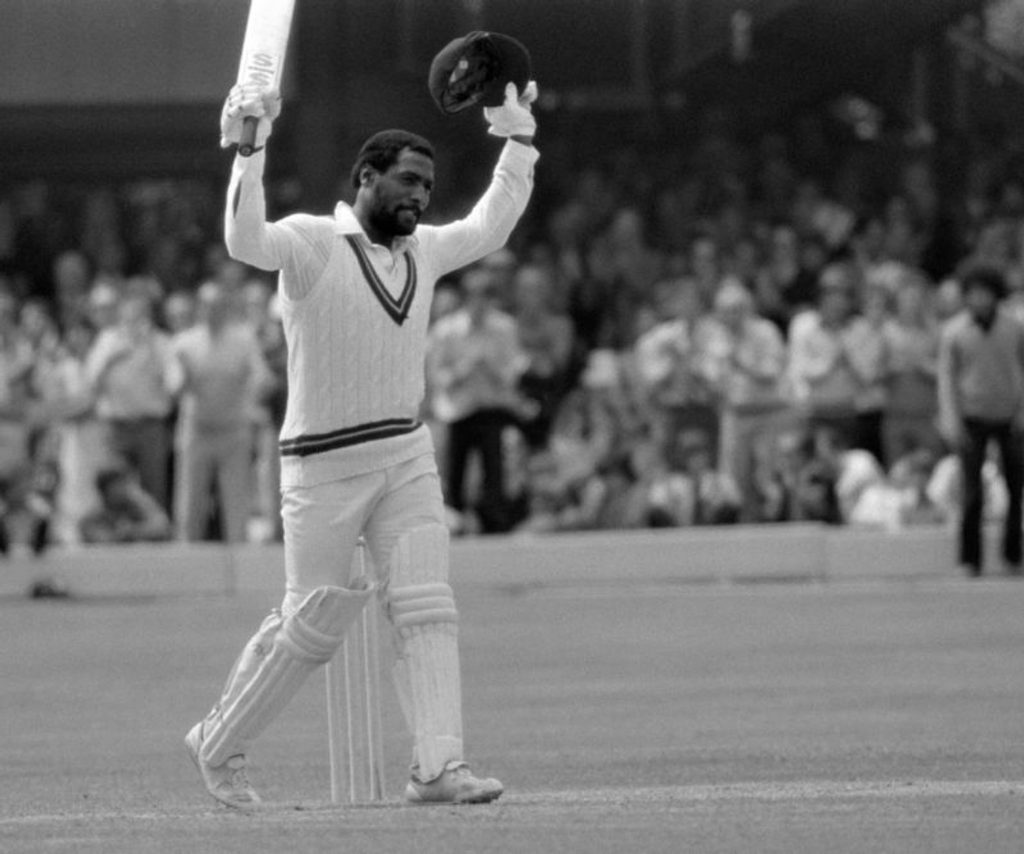 Viv Richards turned the tables on England with a devastating hundred in the 1979 final
Viv Richards turned the tables on England with a devastating hundred in the 1979 final
Mean, muscular and menacing, Richards brought to the crease a style of one-day batting that was ahead of its time. His unbeaten 138 in the 1979 final against England hauled West Indies from a precarious 99-4 to a match-winning 286-9. Arguably the greatest one-day batsman of all time, Richards would carve out a similar legacy at the flagship tournament, where he was West Indies’ main man at four editions, including 1987, when he was captain of the side. Richards would go on to smash two more World Cup hundreds and wind up with a tournament average of over 60.
1,013 CWC runs @63.31, 3 Centuries
5. Clive Lloyd (West Indies) (C)
 West Indies captain Clive Lloyd celebrates reaching 100 runs during the 1975 CWC Final
West Indies captain Clive Lloyd celebrates reaching 100 runs during the 1975 CWC Final
The man in charge as West Indies romped to the title in the inaugural two World Cups, Lloyd was a towering figure at the crease, both physically and metaphorically. As the leader of the finest team of his era, Lloyd established his legacy early in the tournament. And it was in the final of the inaugural edition, in 1975, where ‘Supercat’ truly stamped his authority, tearing into an Australian attack comprising Dennis Lillee, Jeff Thompson and Gary Gilmour, to smash an 85-ball 102, and supercharge West Indies to victory.
393 CWC runs @43.66, 1 Century
6. Kapil Dev (India)
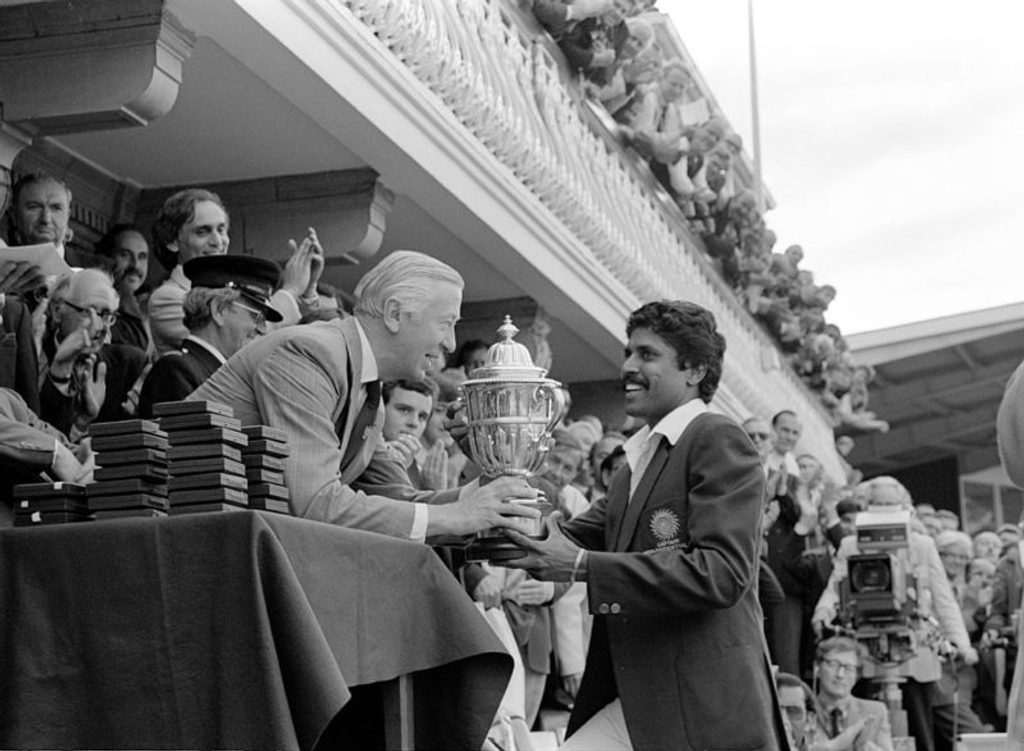 Kapil Dev receives the World Cup Trophy at Lord’s in 1983
Kapil Dev receives the World Cup Trophy at Lord’s in 1983
India’s 1983 win changed the course of cricket history, invigorated a national obsession, and reoriented the world game. At the centre of this epochal moment was Kapil Dev, India’s captain at the time and a supreme all-rounder. In the build-up to the World Cup, the English press had questioned India’s place in the tournament. Kapil soon put paid to this sentiment by blasting 175 against Zimbabwe and taking five wickets against Australia, instilling confidence in his team in the process. A few short weeks later, he was holding the trophy aloft at Lord’s, having taken a stunning, game-changing catch to dismiss Richards and completed what remains the unlikeliest of World Cup wins.
669 CWC runs @37.16, 1 Century; 28 CWC wickets @ 31.85
7. MS Dhoni (India) (WK)
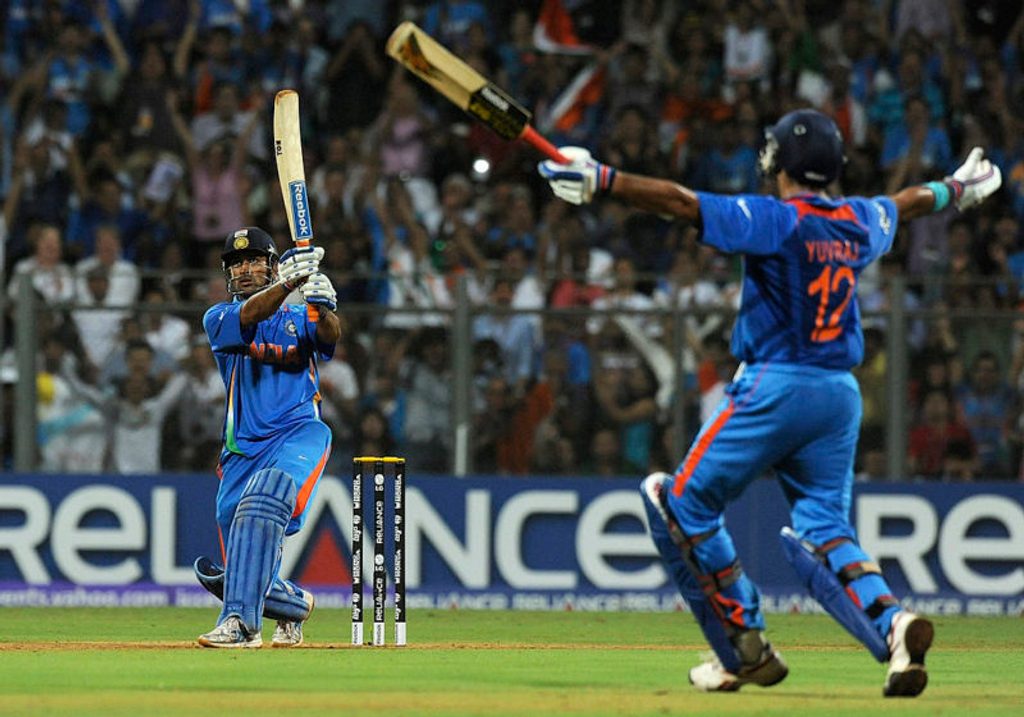 MS Dhoni sealed India’s 2011 World Cup win with a famous six
MS Dhoni sealed India’s 2011 World Cup win with a famous six
India’s winningest all-format captain, MS Dhoni was at the helm when India ascended the summit again, in 2011. And his own greatest moment came in the final. A strong Sri Lankan batting effort had lifted them to 274 and left India needing to pull off the highest successful chase in a final to win the World Cup. Having endured a quiet tournament until the big night, Dhoni seized the initiative to come in ahead of Yuvraj Singh, who was in the form of his life, and changed the course of the innings with his breezy 91 not out. He finished it with a famous six over long-on off Nuwan Kulasekara to take India to the top of the ODI mountain after 28 years.
597 CWC runs @37.31
8. Anil Kumble (India)
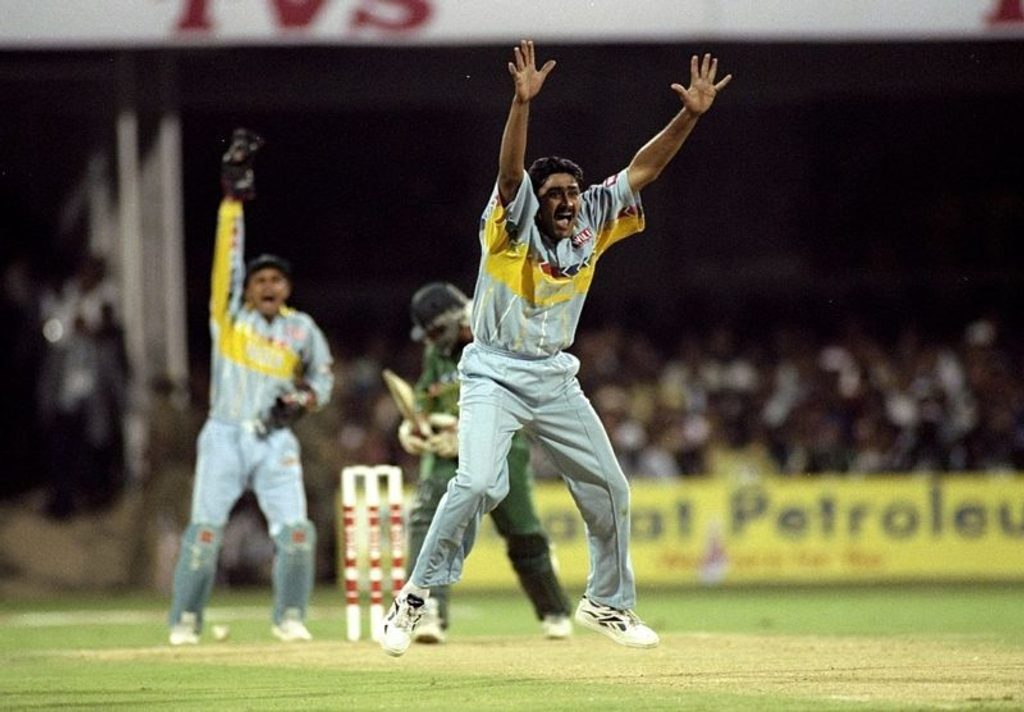 Anil Kumble appeals for a wicket during the 1996 World Cup
Anil Kumble appeals for a wicket during the 1996 World Cup
Wrist-spinners have become the most sought after commodity in modern-day ODI cricket, but long before the art form became a norm, Kumble was one of the few practitioners of this art, and a master at it. His 15 wickets in the 1996 tournament were his best returns, with the 3-48 in the quarter-final against Pakistan, which was instrumental to India’s win, being a veritable highlight.
31 CWC wickets @22.83
9. Joel Garner (West Indies)
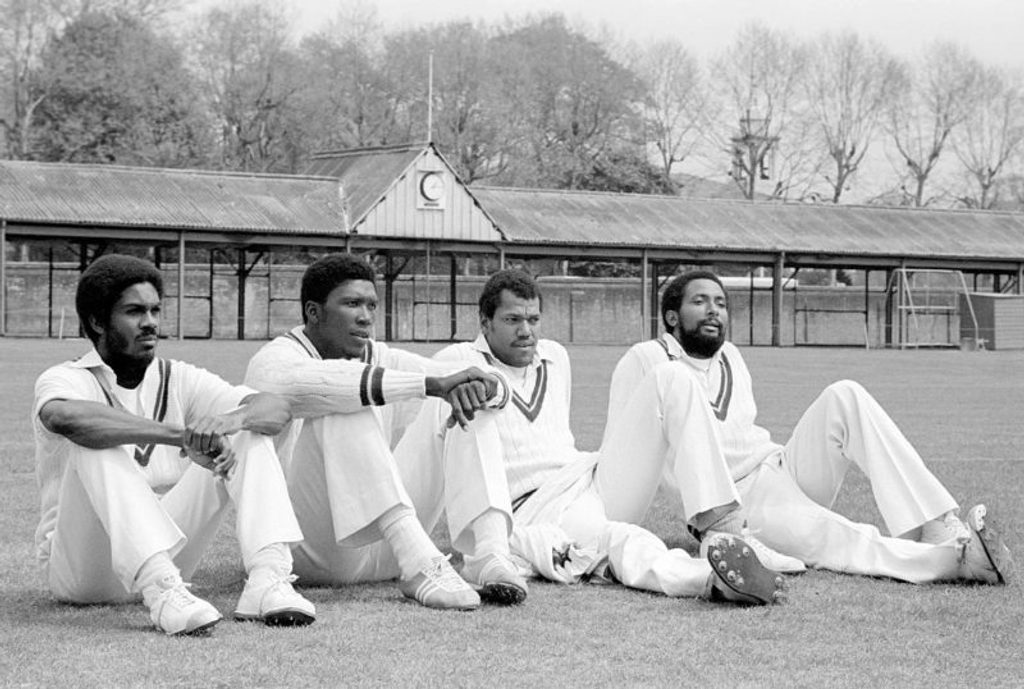 West Indies fast bowlers Michael Holding, Joel Garner, Colin Croft and Andy Roberts
West Indies fast bowlers Michael Holding, Joel Garner, Colin Croft and Andy Roberts
In the early days of one-day cricket, Garner was one of the format’s best bowlers, delivering pinpoint yorkers from a 6-foot-8-inch frame, at speeds upwards of 90 mph. His figures of 5-39, which he snared in the 1979 final, are still the best figures in a World Cup final. The Barbados-born fast bowler was also a part of the highest tenth-wicket partnership in World Cup cricket, when he put on 71 with Andy Roberts in a loss to India at the group stage in 1983.
13 CWC wickets @22.23, 1 five-for
10. Andy Roberts (West Indies)
A bowler with the smarts to match his searing pace, Roberts was a frightening proposition at the first three editions of the tournament. Ironically for a bowler of his calibre, Roberts’ most memorable World Cup moments came with the bat. In the inaugural World Cup’s first true nail-biter, the Antiguan hit an unbeaten 24 batting at no.11, sharing a last-wicket stand of 64 with wicket keeper Deryck Murray in the process, as West Indies beat Pakistan by one wicket.
27 CWC wickets @20.25
11. Michael Holding (West Indies)
Holding’s figures in World Cup cricket render him a difficult player to gloss over while talking about legends of the tournament. His two wickets in the 1979 final, where he removed both the set English openers, opened the gates for an England collapse and took West Indies to their second consecutive title win. Often unplayable, among bowlers to have taken more than 20 World Cup wickets, Holding has the second-lowest economy rate (2.94 runs per over).
20 CWC wickets @17.05








